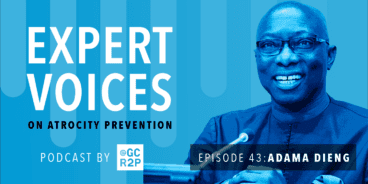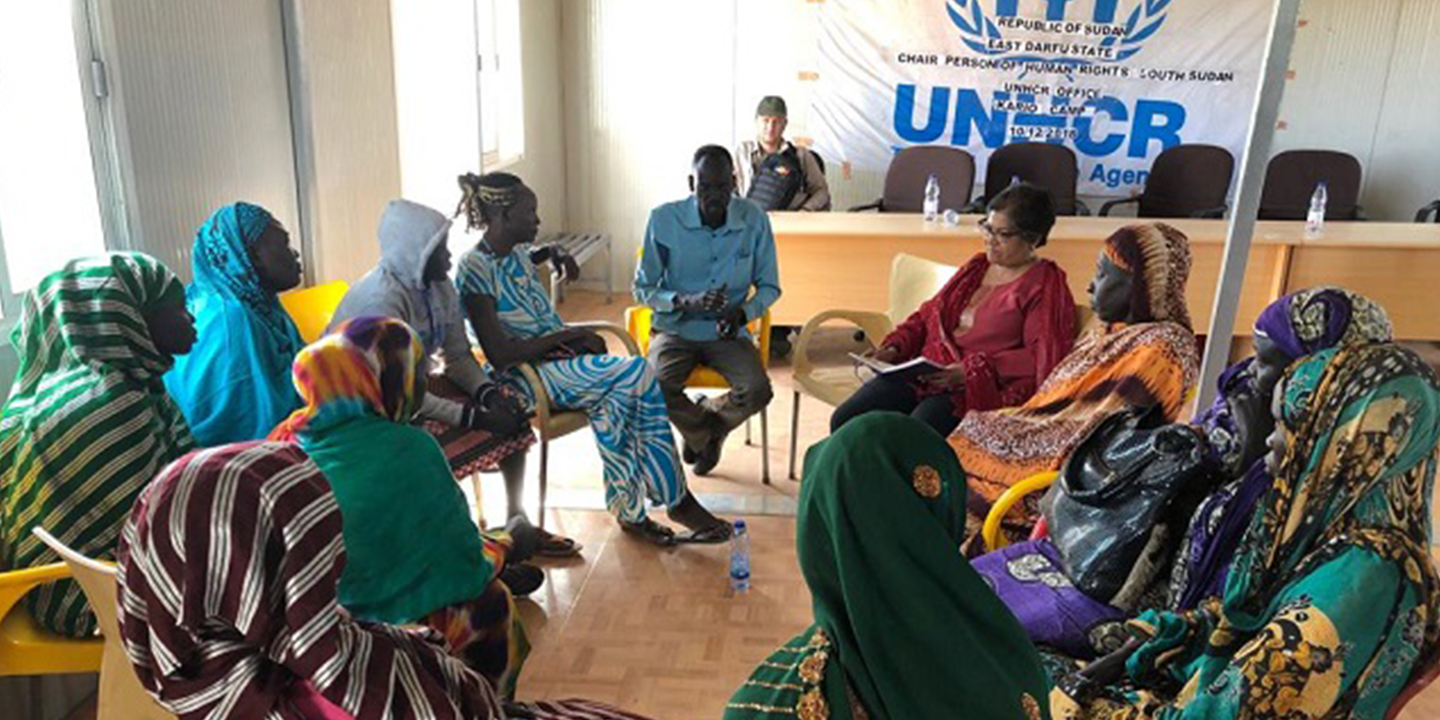

The HRC must not fail again: Renew the mandate of the Commission on Human Rights in South Sudan
Over the past year the situation in South Sudan has vastly deteriorated amidst increased localized and subnational violence. Last week, on 18 March, the Chair of the Human Rights Council (HRC)-mandated Commission on Human Rights in South Sudan (CHRSS), Yasmin Sooka, warned of ongoing local-level conflict throughout South Sudan, particularly in Tambura, Warrap, and Jonglei states, the Greater Pibor area and Bentiu. Ms. Sooka stated that, “parties involved in these insurgencies engage in the collective punishment of communities they believe to support the opposing side or ‘enemy’. The attacks on villages result in massacres of civilians, with forced displacement on an ethnic basis.” The CHRSS has warned that nearly all 14 of the risk factors in the UN’s Framework of Analysis for Atrocity Crimes are now present in South Sudan.
Given South Sudan’s volatile security and human rights situation, particularly ahead of possible elections in 2023, the added-value of the CHRSS is self-evident and undeniable. As political, military and ethnic divisions are widening, there is a heightened risk that the electoral period will be marked by a high level of political competition and tensions, alongside the ongoing rise in inter-communal clashes.
Despite these risks, as the HRC prepares to decide on the future of the Commission next week, the government of South Sudan, supported by some other members of the African Group, is running a sustained campaign aimed at terminating its mandate. Parties to the conflict whose conduct is under scrutiny are sparing no effort in ensuring they remain shielded from accountability. This campaign follows a similar attempt last year when, for the first time since the establishment of the CHRSS in 2016, the resolution extending its mandate was not adopted by consensus and passed by a very close margin.
The CHRSS is tasked with monitoring and reporting on human rights violations, as well as to collect and preserve evidence and identify responsibility. To date, the CHRSS has collected evidence against 142 South Sudanese officials responsible for war crimes and crimes against humanity. CHRSS analysis has critically revealed evidence of the use of starvation as a weapon of war, the relationship between human rights violations and various economic crimes, and endemic conflict-related sexual violence against women and girls. The Commission also regularly conducts specific risk assessments on the recurrence of atrocity crimes, including by directly applying the UN’s Framework of Analysis for Atrocity Crimes.
Political instability and armed conflict have been pervasive in South Sudan for the majority of its almost 11 years of independence. Between December 2013 and April 2018 an estimated 400,000 people were killed as the army and armed opposition groups perpetrated war crimes and crimes against humanity. Despite the 2015 and 2018 peace agreements, as well as the establishment of the Transitional Government of National Unity in 2020, local-level political conflict, fragmentation of armed groups and inter-communal violence persist.
Although the peace agreement includes a chapter on “Transitional Justice, Accountability, Reconciliation and Healing,” there is little political will to pursue accountability for atrocity crimes. There has also been limited progress in establishing the agreed-upon Hybrid Court for South Sudan. Pervasive impunity continues to fuel resentment, encourage reprisal violence and enable the recurrence of atrocities.
HRC-mandated investigative mechanisms are particularly important in situations where there are no realistic avenues for justice and accountability in the national context, where paths towards international justice remain elusive, or where impunity for perpetrators prevails. Although investigative mechanisms are not mandated nor created to initiate criminal proceedings, they may serve as an important deterrent and inhibit the potential commission of further atrocities.
Since prospects for the expeditious establishment of the Hybrid Court for South Sudan remain dim, the work of the CHRSS is invaluable for potential future prosecutions, regardless of when and where they may take place. The CHRSS is not only reporting and monitoring human rights violations, but also providing the government with recommendations on technical assistance and capacity-building on human rights and justice issues. Furthermore, the attention the CHRSS gives to identifying risk factors for atrocity crimes demonstrates why it would be imprudent to vote against its mandate at a time when such risk factors are increasing.
Terminating investigative mechanisms or watering down existing mandates in order to achieve political consensus not only diminishes international scrutiny of a situation, it can have clear consequences for civilians. Nowhere is this reality clearer than in Yemen, where the international community is currently learning an important, yet painful, lesson following its failure to renew the mandate of the Group of Eminent Experts (GEE).
On 7 October 2021 populations in Yemen were effectively abandoned by the HRC when the body failed to renew the mandate of the GEE. Since then, there has been a devastating escalation in hostilities with civilian casualties almost doubling since October as compared to the preceding four months. Monthly airstrikes by the Saudi Arabia and United Arab Emirates (UAE)-led coalition have increased by more than 100 percent while the Houthi armed group also continues to violate the laws of war.
The termination of the GEE did not arise because the situation in Yemen no longer required international scrutiny, but rather resulted from a sustained campaign of diplomatic and political pressure by Saudi Arabia and the UAE. By terminating the mandate of the GEE, the HRC failed to uphold its own mandate to use the tools at its disposal to “address violations of human rights, including gross and systematic violations” and to promote “universal respect for the protection of all human rights and fundamental freedoms for all.”
The situation in Yemen is one example that starkly demonstrates the direct consequences of allowing impunity for atrocity crimes, and underlines that the existence, work and findings of UN investigative mechanisms do carry significant weight. If HRC members draw one important lesson from Yemen, it is that prematurely terminating investigative mechanisms in situations characterized by ongoing atrocity crimes has a grave impact on vulnerable civilians. In reflecting on the atrocities in Yemen since the termination of the GEE, a former member of the body said somberly: “We told you so,” sending a powerful message to the international community that the civilian suffering inflicted by widening the accountability gap was both predictable and preventable.
The CHRSS is currently the best and only means for safeguarding future accountability efforts in South Sudan, and in doing so helps protect civilian lives. A repetition of the same grave error by the HRC should be avoided at all costs, especially while South Sudan is – as rightly warned by CHRSS Commissioner Barney Afako – at a “tipping point” and at serious risk of political violence and polarization in the short term.
Related Content


Atrocity Alert No. 434: Sudan, Ethiopia and the UN Human Rights Council
